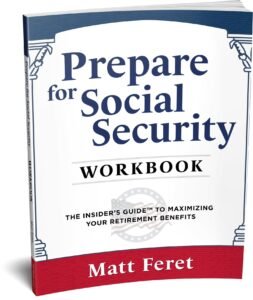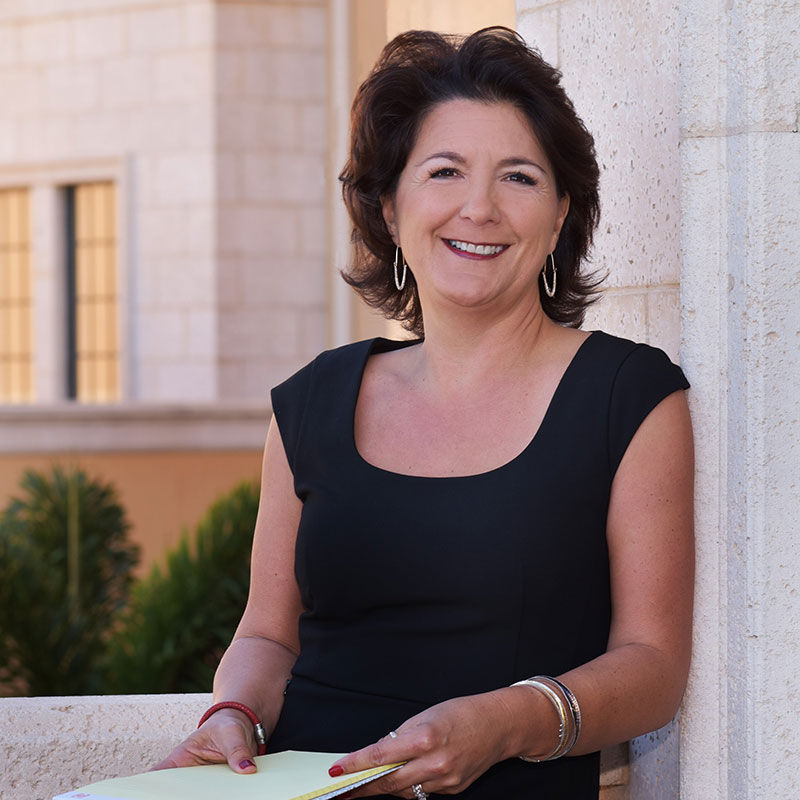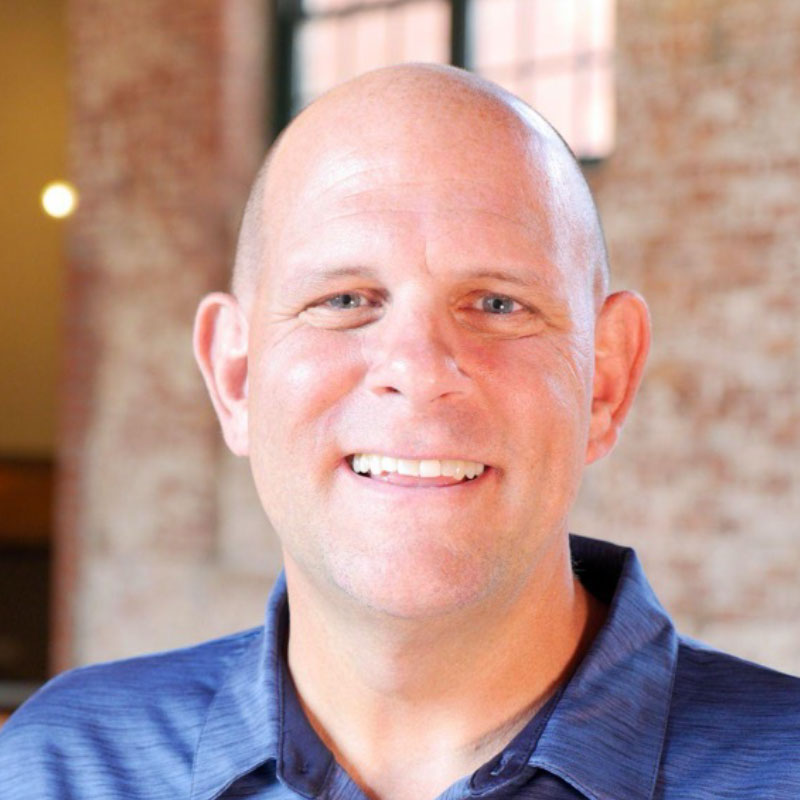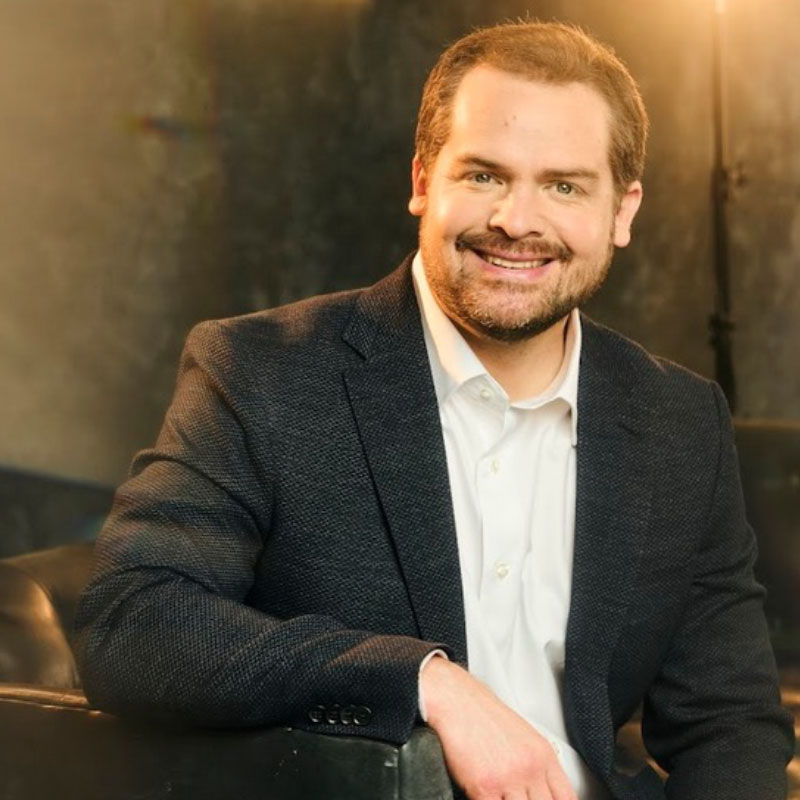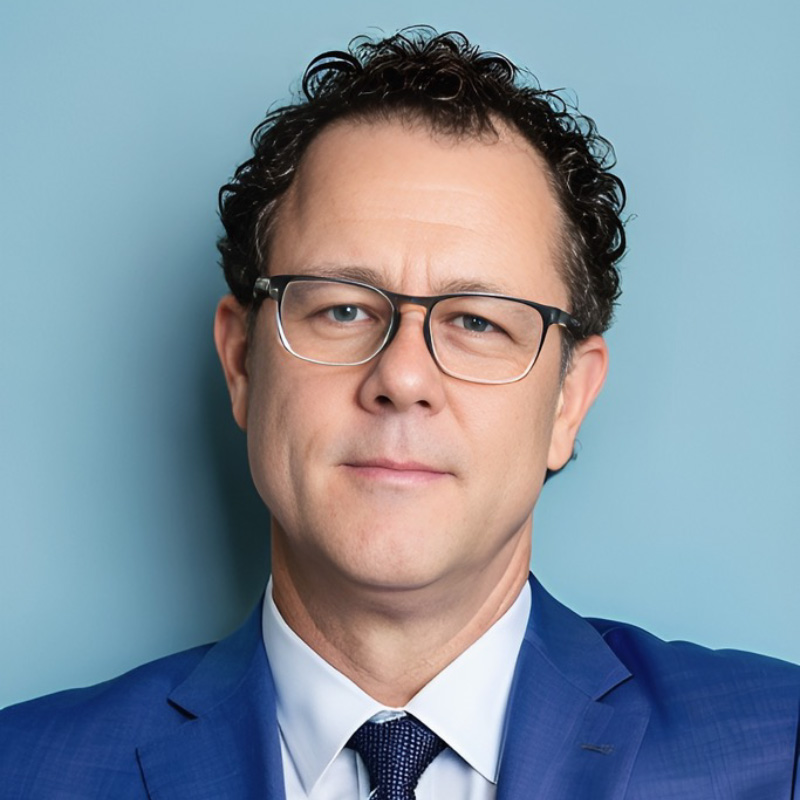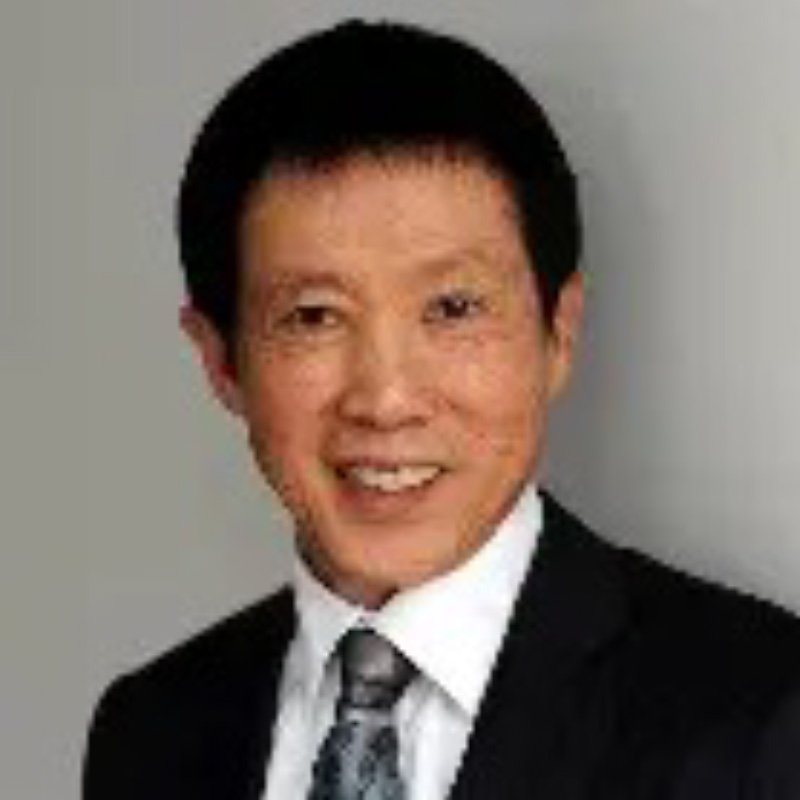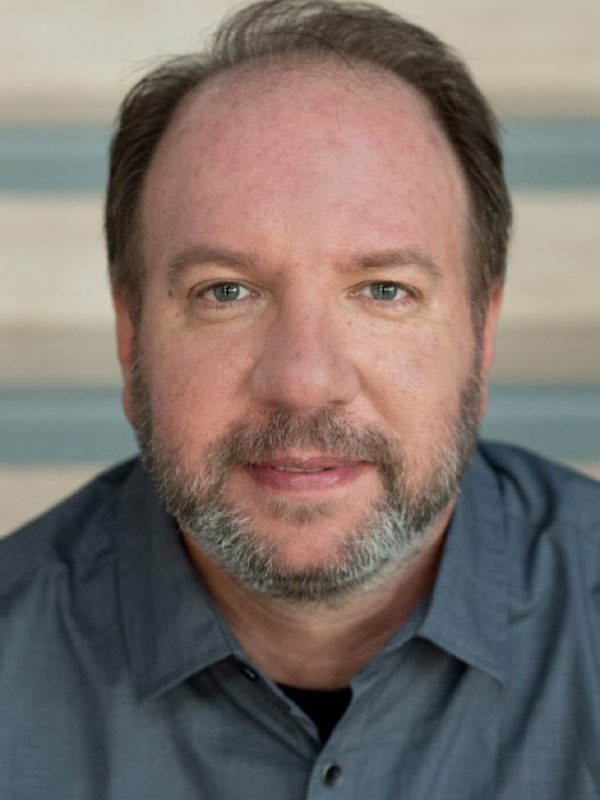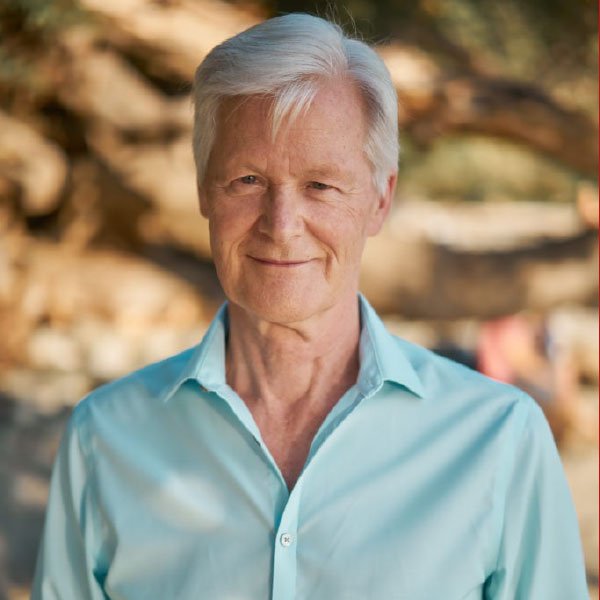#072
Share This:
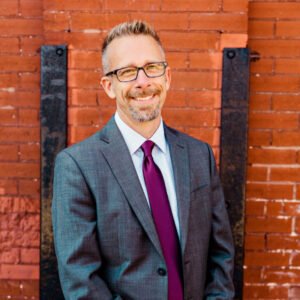
In this episode of The Matt Feret Show I interview Tony Hixon, an author and co-founder of wealth management firm Hixon Zuercher Capital Management. Tony shares personal experiences that inspired him to write his book, Retirement Stepping Stones, and develop a coaching program at his firm to help retirees navigate the non-financial aspects of retirement including life goals, values, social connection, and legacy. Tony shares the process of transitionary retirement planning, shares advice for new retirees, and encourages retirees to find purpose and meaning in their second half of life.
If you liked this episode of The Matt Feret Show, you may also enjoy:
The Balanced Wealth Approach with Author and Financial Advisor, Tom Hine
Journaling Ideas for Self-Discovery and Leaving a Legacy with Kent Sanders, Author and Host
Listen to the episode on Apple Podcasts, Spotify, Deezer, Podcast Addict, Stitcher, Google Podcasts, Amazon Music, Alexa Flash Briefing, iHeart, Acast or on your favorite podcast platform. You can watch the interview on YouTube here.
Brought to you by Prepare for Medicare – The Insider’s Guide book series. Sign up for the Prepare for Medicare Newsletter, an exclusive subscription-only newsletter that delivers the inside scoop to help you stay up-to-date with your Medicare insurance coverage, highlight Medicare news you can use, and reminders for important dates throughout the year. When you sign up, you’ll immediately gain access to seven FREE Medicare checklists.
Quotes:
“Perhaps now's your opportunity to make a larger impact. Perhaps now is your opportunity to really find your why, to identify who you are, what's important to you, what values do you want to leave for the next generation? How do you want to build into your kids and grandkids? What impact do you want to leave on this world before you breathe your last? That question starts with who you are, and our coaches are there to help our clients interpret and answer that question.”
“Retirement is great. I think it can be the most beneficial, rewarding, fulfilling times in retirees’ life. But if it's unplanned for, it can be just an existence. If it's planned for, it can be impactful. And we want to promote impactful lives for their second half.”
“I desire to help retirees avoid the mistakes that can come from an unplanned retirement to allow them to survive and thrive in their second half, to continue a life of meaning beyond retirement, to make their future bigger than their past. Because they matter. They matter to this world. They matter to you. They matter to me, and I want to see them thrive in retirement.”
#072
Selected Link from the Episode:
Host’s Links:
All Things Medicare: prepareformedicare.com
Decoding Social Security: prepareforsocialsecurity.com
My Written Works on Amazon: www.amazon.com/stores/Matt-Feret/author/B09FM3L4WW
The Matt Feret Show YouTube: www.youtube.com/@themattferetshow
Network with me on LinkedIn: http://www.linkedin.com/in/mattferet
Follow me on X: twitter.com/feret_matt
See behind the scenes on Instagram: www.instagram.com/matt_feret/
Join our community on Facebook: www.facebook.com/themattferetshow/
Guest’s Links:
Tony’s website: https://tonyhixon.com/
LinkedIn: https://www.linkedin.com/in/tonyhixon/
X: https://x.com/tonyhixon?lang=en
Facebook: https://www.facebook.com/TonyHixonCIMA/
Full Show Transcript:
Announcer:
This episode of The Matt Feret Show is brought to you by the Brickhouse Agency. Brickhouse is a boutique independent health insurance agency that focuses on finding the right Medicare coverage for folks across the country. Matt's wife, Niki, is the heart behind Brickhouse. She's great at making confusing things clear and is passionate about helping people find a Medicare insurance policy that suits their individual needs. To schedule a free one-on-one appointment with Niki or a member of her team, head on over to brickhouseagency.com or simply call (844-844-6565), and someone will help you schedule a phone call or a Zoom meeting. The consultation is free because the insurance companies pay Brickhouse, not you. There's never any pressure or obligation to enroll. Your clearer, simpler Medicare journey is just a call or click away. brickhouse agency.com. Not affiliated with or endorsed by the government or federal Medicare program. Contacting Brickhouse Agency LLC will direct you to a licensed insurance agent.
Introduction to Tony Hixon’s Story with Matt Feret [1:09]
Matt Feret:
Hello everyone. This is Matt Feret, author of Prepare for Medicare and Prepare for Social Security Insider's, guidebooks, and online course training series. Welcome to another episode of The Matt Feret Show, where I interview insiders and experts to help light a path to successful living in midlife retirement and beyond. Tony, welcome to the show.
Tony Hixon:
Hi, Matt. Thanks for having me.
Matt Feret:
Thanks for being here. So tell everybody what you do, how long you've been doing it, and how you help people.
Tony Hixon:
Oh, cool. Yeah, so what I do, I'm a co-founder of a registered investment advisor, a wealth management firm here in northwest Ohio. Little town called Findlay, founded the firm in 2002, or co-founded the firm in 2002. So we've been helping people invest wisely through a lot of volatile markets for the past 21 years. And so, yeah, I've been in business 21 years. Prior to that, I worked at a CPA firm, and obviously running numbers and being behind a 10 key all day and filling out form 10 forties just didn't end up being what I wanted to do with my life. So being able to sit across the table from a client who looks across the market landscape and doesn't quite know what to do has been really fulfilling. And so, yeah, I've spent my career helping individuals make wise decisions with their money.
Matt Feret:
Well, it sounds like a very worthwhile and much needed career, yet you're also an author, so can you talk about your book and B, why you decided to write one?
Tony Hixon:
Yeah. Well, the book is Retirement Stepping Stones. We released it going on a couple of years ago, and yeah, it really was born out of a personal tragedy that I went through that really changed the way that I offer and give financial advice to my clients. And so would it be okay, Matt, if I kind of told the backstory as to why I wrote that book?
Matt Feret:
Please, please do.
Tony Hixon:
Alright. Well, I guess we backtrack to when I was a kid. I was normal every day childhood. My dad was a factory worker and a farmer, and my mom was a nurse and she actually graduated and as a registered nurse in 1971 way before I was born. But once my sister and I came into the world, she realized that working a swing shift of local hospital just proved it difficult to raise a young family. And so she desired to have more stable hours and a steady income. And so she found her way into a home health agency locally, and this would've been the early eighties, and this was when hospice began to become a thing. And Matt, I'm sure by now your audience may know what hospice is, but just as one sentence reminder, it's kind of when the healthcare industry is done with a patient and there's really nothing left for them to do, and they really want them to go home so they can be surrounded by loved ones and familiar surroundings as they depart this life and enter the next, and my mom found her purpose and her calling in this particular career, I couldn't handle it, but she loved it.
She was able to sit bedside with these patients as they breathe their last, and she was able to provide emotional support and care for the family that was left behind as they grieve their loss. And she'd get up for work the next day and repeat that same thing over and over again. She worked her way.
Matt Feret:
I couldn't do it. I couldn't do it either, Tony. I mean, God bless the people that can.
Tony Hixon:
For sure. Well, she worked her way up through the ranks and ultimately became the executive director of a local hospice agency. And it was there that she found her greatest calling, her significance and her purpose. But fast forward to the mid two thousands, and that was when electronic medical records really began to become a thing. And if you know anything about my mom, she was not technologically savvy, and she ultimately ended up finding herself behind a desk instead of beside her patient providing care. And this ultimately led to the largest career burnout I had ever seen. And she wanted nothing more than to escape that rat race and to retire back on the farm that my dad and her still lived on. And well, she did the right thing. She contacted her primary financial advisor. It wasn't me. We separated family and business, which is always a good thing.
And so she asked her primary financial advisor the magical question, do I have enough money to retire? And this advisor whipped out her software, her credentialing, and her experience, and gave my mom the green light to retire. Well, I was eight years into my career at the time, so this was 2010, and my mom wanted to give me the honor to provide a second opinion, so she gave me her numbers and I too, I ran, I got out my software, my experience, and in my credentialing, and I too came up with the same result. I also gave her the green light. Mom and dad had enough money to retire, and so she did. And within a short amount of time after retirement, we knew that something was wrong. You see, the purpose and significance that she had found in her career was now nowhere to be found. She knew exactly what she was retiring from, but she had no idea what she was retiring to. And she began to lose direction and purpose and significance in her life. Her title is what defined her, and she didn't know who she was apart from being a hospice nurse. She had enough money to sleep at night, but not enough purpose to get up in the morning. She fell into a deep depression in six months after retirement. On the morning of March 22nd, 2011, my mom, Pam Hickson, chose to take her life.
Matt Feret:
Oh man, Tony.
Tony Hixon:
The ripple effects of that, Matt, were staggering. My dad, they were high school sweethearts. He had no one to the second half of life with my sister, and I had no mom, my kids, her grandkids would miss out on the blessing that their grandma would be to them. And I was left to pick up the pieces. As you see, I was one of the financial advisors that gave her the green light and the immense amount of guilt and shame was immense. But I chose by God's grace to turn this tragedy into triumph and these stumbling blocks and the stepping stones. And I sought to learn from this experience so that others who would come after her wouldn't suffer from the same mental health anguish that may come from an unplanned retirement. And so I wrote the book to help people navigate the transition into retirement from a non-financial perspective, answering the question of who am I? What am I going to do next? What am I retiring to? How will I drive purpose in my second half? How will I make my future bigger than my past? That's what the book's about. That's my why, and that's why I released it Retirement Stepping Stones a couple years ago.
Matt Feret:
Yeah. Thank you very much, Tony. That is a extremely moving story and sad story. How do I ask this? When you were the second opinion for your mom, you were doing what you'd been trained to do, doing what you thought was right, doing what you're doing for other clients, and you gave her the green light to retire financially. And it's not even a fair question for me to ask why you felt guilty, right? It's the stages of grief. I mean, there's a million reasons why that, but was it more of a sense of you thought you should have maybe asked more of the questions around, okay, what are you retiring to? Or was it just part of the grieving process? I mean, I'm sure you've been told this before and we don't know each other, but I'll say to you, that's not your fault. That's a different piece, isn't it?
Tony Hixon:
Thank you. Yeah, I appreciate your kind words, Matt. I think it was part of the grieving process, and I heaped guilt on myself that I should have known better. I should have asked more questions. I should have recognized the signs. I should have reacted differently. My dad, my goodness, he has guilt beyond, beyond comprehension. It's been 12 years and he still rethinks different things that could have been different. The immense amount of guilt is self-given. It's nothing that I trained for. I went to college, I had designations. At no point did I receive mental health counseling during those training, but I still felt guilty because that was ultimately the decision that drove her to her decision to commit suicide.
Matt Feret:
You mean the decision to retire?
Tony Hixon:
Yeah, I think ultimately, Matt, the statistics would reveal that 40% of retirees will experience some sort of anxiety and depression after retiring. And a large majority of retirees actually will get divorced because ultimately they go from a bit of healthy separation during the career phase to now being together all the time. And so, yeah, I think that retirement in life, we have life quakes. We have situations that occur, significant changes that occur that cause us to really be stressed out and can cause anxiety for us. And the way to mitigate that is through proper planning. And because mom wasn't prepared for what was next, she was unable to mitigate the anxiety and depression that came from that decision.
Matt Feret:
Do you think this is a total guess ask, do you think part of her, do you see this in healthcare professionals? I mean hospice, when I said in the middle of it, you said it too. I couldn't do it. I mean that it takes a very special person to be able to provide that end of life care over and over and over and over. And I've not looked any of these up, but I have to imagine folks in the healthcare profession, or you read firefighters or you read, I mean farmers, farmers have a high rate of suicide. I do know I've read that over the years. Do you think it has to do anything with the actual profession they're retiring from and some sort of subconscious piece? Or is it the purpose piece that you mentioned because they had such an impactful career and profession?
Tony Hixon:
Matt, I don't know if you know how deep your question really goes, but I've done a lot of thinking about this very topic that you're addressing. And what did my mom do? She sat bedside next to a patient that breathed their last. And ultimately, if you're suffering and you're in a hospice program, the only thing that ultimately brings you peace is to breathe that last breath. You want nothing more than that next life to meet Jesus, to go to heaven, to have Nirvana. And so my mom, over a career of 30 plus years of seeing that peace that each of those individuals experienced as they transitioned from this life to the next in some twisted way became her desire as she was so, so depressed, so anxious about what was going on in her world, the decision that she had made was so wrong, and the peace that she had seen happen in so many of her patients' lives, she saw it for herself in some twisted way, in some way that I can't even quite explain. She made peace with death, and she felt that that was the way to bring peace from the depression that she had had.
Transitionary Approach to Retirement Planning with Tony Hixon [13:28]
Matt Feret:
Yep. I understand the comment, but obviously not anywhere near the depth, and I don't think anybody could other than those who have lived through something like that. So thank you for addressing it, really sensitive topic, and hopefully I didn't ask anything that was silly or offensive. Let me move towards your pivot then, from moving from just, I say just financial planning, IE, do I have enough to retire to the other pieces of this? I mean, this is an industry, you're part of an industry with many large firms, many independents. The quantity and quality, depending upon where you live, can vary wildly in terms of experience, expertise and recommendations. What's your, you came out of this or I don't know if you ever do come out of death of a parent, but you've evolved from that time 12 years ago into doing what you're doing now. So tell me about working with clients in a different way as a result of this, and then more broadly, perhaps talk about the industry and where it's moving or where it should.
Tony Hixon:
Yeah, I would be quick to say that the learnings that I described in the book and that we'll talk to you about today didn't happen overnight. It was a process. And so I can't say that the things that we're doing in 2023 were things that we were doing even 10 years ago. They were just ideas and concepts and motivations that came to mind as I sat across from clients during their transition. And I started to think, well, what if I could ask the question this way or what if I could help them this way? That had nothing to do with Roth conversions, that had nothing to do with tax planning or nothing to do with numbers, but just to help them really start to think about making their future bigger than their past, figuring out what could be plan B for them. What could they do to not, not experience that loss of purpose that my mom felt?
And so, I guess the way that we're expressing that now is we actually have a coaching program here at our firm. So this particular, we have a life coach. His name is Scott Miller, and he provides no financial recommendations in any way, shape or form. Rather, he gets involved in our client's lives to ask them the right questions. Bill Belichick and Tom Brady, right? He doesn't go backwards and say, what kind of childhood trauma did you receive? And he's not a counselor, he's a coach. He's extracting the best out of our clients. They've had 30 plus years in their career. They've got skill sets that they continue to bless humanity with. Just because they're retired doesn't mean they're extinct. Retiring an asset means it's out of service. They're not out of service. They still have their second half of life to live. And so what Scott does, what our firm does is we embrace the client in that transition and we encourage our clients to take what we call a halftime.
So a halftime during a football game, you go into the locker room, you assess what happened in the first half, and no one remembers the score at halftime, no one, I don't care what sport you believe in, no one remembers the score at halftime, but you come out in the second half and you win the game. And that's ultimately what our firm is about, is really helping our clients transition into a life of purpose, into a life of meaning, into a life of significance beyond their title at work and beyond what they may have been able to accomplish during their day job. They can now live a life of their dreams, and we encourage them to do that.
Matt Feret:
So walk me through, if you don't mind, and I love the concept, walk me through, if you don't mind, let's say I'm a new client and let's pick an age. I don't know what age is a good age to start? 40, 45, 35, 55. Any given age? Let's say 55. Alright. Let's say I'm not planning on early retirement in whatever shape form you want that. How do the conversation start? I guess normally in my brain it goes, I've amassed a bunch of 401k money or a bunch of IRA money. Maybe I've paid some college tuition that's now gone, and now I'm kind of getting to a point where I know I need some help and I don't want to mess things up for the time. I eventually do retire financially, right? So it's always, well, I would imagine the first intro is financial planner can help me with financial things. And so take it from there. Let's say I came to you and said what I just said, financial planner.
Tony Hixon:
That's right. Yeah, I would simply, again, you're asking really good questions. I love your show, Matt. I appreciate the opportunity to be on. Oftentimes if you would come to me right away, we would answer all your financial questions, we wouldn't really push the topic of what's next until you are ready. If you came to us really wanting to solve your number, we're going to solve for your number. But along our client relationship path, when it becomes appropriate for me to ask you this question, who are you? Who are apart from your career? And oftentimes that question is stunning because in your career phase, you are busy. And Matt, I know you're a father of, is it four children that you have-
Matt Feret:
Three, three children
Tony Hixon:
And you're raising those kids, you're a busy father, you own your own business, you're a busy person, you're paying off the mortgage, you're climbing the corporate ladder. When that question percolates, it's very easy to suppress it because you're busy. But upon retirement, that question rises back to the surface and there's nothing there to crowd it back out. And so you're forced to reckon with this question is, who am I apart from my career? And all of a sudden, you don't know. And that's where my mom was. She couldn't answer, I'm a hospice nurse. Well, no, you're not. You're retired. Who are you? And so what we do in that first phase of coaching is to really help them identify their values. And so perhaps for you, Matt, I'm not sure, where's a place that you enjoy to volunteer your time at?
Matt Feret:
Oh, here, feed my Starving Children.
Tony Hixon:
That's so beautiful. And yet, you're in the career phase. You're busy, you don't have enough time to be able to volunteer a lot. Perhaps now's your opportunity to volunteer more. Perhaps now's your opportunity to make a larger impact. Perhaps now is your opportunity to really find your why, to identify who you are, what's important to you, what values do you want to leave for the next generation? How do you want to build into your kids and grandkids? What impact do you want to leave on this world before you breathe your last? That question starts with who you are, and we're there our coaches there to help our client interpret and answer that question.
The Process of Transitionary Retirement Planning with Tom Hixon [20:35]
Matt Feret:
So if I'm a potential client and you hit me with all those questions, my hair is going to blow back and I might lose some of it in the process. Those are really heavy questions. How long does this, or how long does it normally take? If people have immediate answers, can you kind of move or do you find most people are like, whoa, wait a minute. Should I fill a form out? Can I have a minute? How long does it take to once you start to answer these questions, what's the process like for most people?
Tony Hixon:
Sure. So what we have discovered is that you are absolutely right. It is a heavy topic, and we're not counselors, we are coaches. We want to help coach them into the second half what we've found to be a good way to delineate who they are and their top values. Have you ever heard of the value cards? It's a 52 card deck where we have articulated 52 values on this card deck. We hand that to the client and we say, make two piles. If the value on this card seems like you put it on your left, if the value doesn't really resonate with you, put it on your right. And so they make a very quick process of that, and we say, shove the ones off to the right. Get them off the table. Now take the ones that were important to you and get those down. Delineate those into 10, and they spend some time to get it down to 10, and they're really proud at that moment. Here's my 10 values. And we're like, I'm sorry, we want you to whittle that down to five, right?
Matt Feret:
Oh yeah.
Tony Hixon:
And they whittle that back down to five. And what percolates to the top. What has to happen is those top five values become the beginning conversation stage for what could be next for them. It's the impetus for ideation of what their dreams could be in their second half. So to answer your question, that's the conversation starter. And once we identify what those values are, it can take a series of meetings, a series of them meeting together with their spouse if they happen to be married, if they're not married, they can visit with a friend or a spiritual counselor or a loved one, and they can really narrow in on their unique ability, their special skill, their special purpose that they want to bless this world with.
Matt Feret:
That's a good process. I can imagine it takes, I'm sure it changes. If I said, Tony, I'm going to retire. And then you said, great. Let's go with your financial piece. We'll go with your retirement planning. I'd say, great. I don't know that my brain would be ready to even think about those things because I'm still busy up until the point of retirement. Is there a time that I should begin thinking about these? I guess they could be called existential questions. Is it years before retirement? Do I have to get my job if I identify with it so much? Or my function in life during working time away, and do I have breathing space or is it different for everybody?
Tony Hixon:
That's a great question. It's different for everybody. In a sweet spot, it would be about two years out just to familiarize yourself, we familiarize our clients with these concepts. We have four pillars. I've identified one, who am I? I can talk about the other three if you'd like. We start to put this terminology into their minds. We start to get them thinking like, oh my goodness, this is a big decision. And not just from a financial standpoint. This is a big decision from a non-financial standpoint too. And then they continue to wind down their career over the next few years. And then upon retiring, that's when that halftime takes place. And during that halftime, they breathe, they do their house projects, they go on their golfing trips, they take their travels, they have their alone time with their spouse. But there comes a point when that gets boring, we sensationalize.
Matt Feret:
Yeah, I can imagine.
Tony Hixon:
We sensationalize retirement on the beaches, on TV all the time. At some point, those things become rote. They become routine, they become boring. You can only golf so much. And once they get to that stage, then it's when our coaching really takes root and we're able to talk about those extra pillars and for them to really craft, formulate, dream and navigate what their second half looks like. So halftime can take anywhere from six months to a year any more or longer than a year. It's little less impactful, but it seems like six months to a year is a good sweet spot. I would be quick to say Matt, too, that for those of your listeners who's like, wow, this guy thinks that retirement sucks, right? Everybody who retires is going to get depressed or anxious. I, I'm not implying that in any way, shape, or form, but what I am implying is that my story led to that. My mom's story led to that. And if there's anyone that I can help prevent that same thing from happening to them, I want to be that person. Retirement is great. I think it can be the most beneficial, rewarding, fulfilling times in retirees life. But if it's unplanned for, it can be just an existence. If it's planned for, it can be impactful. And we want to promote impactful lives for their second half.
How to Discuss Transitionary Retirement Planning with Loved Ones with Tony Hixon [25:59]
Matt Feret:
If I'm a spouse of someone who's retiring or a caregiver, which can mean many, many things, but let's just say a kid who's parent is retiring, what are some signs to look for in terms of losing one's identity? How should I approach this topic? I mean, it's easy to say, mom, dad, go find a financial planner to make sure you're not going to run out of money. That's pretty, to use your phrase, it's pretty rote. Everybody knows that. But the other piece of it is tricky because you're also maybe poking your nose in your parents' business, and you may have that type of relationship with your parents. You may not. What's your advice for folks my age? Your age with their parents thinking about this thing and really trying to give them some advice where they may not think they need some?
Tony Hixon:
Yeah. Well, the passive aggressive approach is to hand them a book. You need to read this.
Matt Feret:
Hand them your book. Yeah, yeah.
Tony Hixon:
A book that would just challenge them to think through what could be next for them. And I think ultimately it does depend on that parent-child relationship. If you have a really great relationship with your parents, I think it's okay to ask those questions. It's okay to ask, well, what are you going to do next? What are you waking up to? What is your day going to be filled with? You're spending eight hours a day at the office, and all of a sudden that's free time. How are you going to fill your day? You can only mow the lawn so much. You can only go to coffee with a friend for so long. You have the extent of the rest of the balance of your day to make an impact. What are you going to do next? I believe that that just is showing love. It's showing care. It's showing that you are interested. It's questions that have to be asked, no matter if it's an uncomfortable question. It needs to be asked to ensure that your parents will live in a thriving way throughout their retirement.
Matt Feret:
Are there any type personality types A, B, and then there's BA, AB. I mean, they're all over the board. People try to categorize folks into this. I know we mentioned two professions that can lead to these more impactful transitions from working to retirement. Have you seen any personality types or ages or parts of the country? I'm just interested in the demographics of it, if you've got experience with it.
Tony Hixon:
Yeah. The healthcare industry is definitely an easy one to pick on, especially doctors, right? Because you've been referred to as a doctor, Dr. Feret, for the balance of your life. Is that how you say your last name? Is it ferret?
Matt Feret:
Yeah, it's just a misspelled weasel. Yeah, that's correct.
Tony Hixon:
Didn't know if it was French.
Matt Feret:
Oh, people's trying to get fancy with it, but there's nothing fancy about this. It's just ferret, Feret.
Tony Hixon:
Dr. Feret has been a doctor for 30, 40 years, and then all of a sudden, upon retirement, he becomes Matt, right? And Dr. Feret went to all of these community functions, and on the name tag it said Dr. Feret. And then number one, he's not likely going to get invited to the community functions anymore. And if he does, his name tag will drop the doctor in front of it. And so ultimately, that title change, the pride that's wrapped up into that career has gone away and that title has gone away. So we do see a lot of 40% of depression and anxiety and new retirees. A lot of that is concentrated in the healthcare industry. Another area of concentration is small business owners. So blood, sweat, and tears into your business. You've built it from nothing, especially founders have built it from nothing to something. And to leave your baby can be really unsettling, can be a really hard transition for small business owners. As far as areas of the country, no, it's agnostic. We're all humans, even though that's rural or urban or west coast or east coast, we're human beings. And retirement is a life quake. It's a life transition that can be so unsettling that it can cause that anxiety that our firm and that our message is to try to prevent. So area of the country doesn't matter. But definitely career and title certainly does.
The Pillars of Transitionary Retirement Planning with Tony Hixon [30:39]
Matt Feret:
I've reminded me of something I've said to a lot of people because I've worked for several different big companies, small companies, medium sized companies, and I've always kind of, I don’t know if I picked it up or made it up. I've talked about real friends and work friends. When you have work friends, if you've had 15, 20 people at work that you're friendly with, you work with all the time, they're work friends. And when I've left, and I don't think it's just because I’m a disagreeable guy, but when I've left, it's usually one, maybe two who will be real friends. They'll make that work friend to personal friend transition. But it's only one or two. I got to think that's can be jarring for people when they're filled with the vibrancy of coworkers. And even if they're just meeting, if they've transitioned to virtual work and doing what we're doing, staring at a computer screen, but they're still staring at faces and they feel like they have a comradery. And then when they leave, poof. Have you found that to be true?
Tony Hixon:
Matt, you're picking on our third pillar. Our first pillar is who am I? The second is, well, if that's who I am, then what's next for me? How do I make my future bigger than my past? It's the dreaming stage. The third pillar is social connections. Who's coming along with me on this journey? Because ultimately you're correct. And I think my mom experienced that. She had plenty of workmates, but she didn't have any playmates, right? And so when she retired, her friends, her workmates were still employed. They were still at the office. My dad hadn't retired yet. He was still at work. And so they were just unavailable for connecting throughout her day. And that's ultimately true for many retirees as well. You build 40 plus hours a week with your workmates. You build friendships, social connections in when that's gone and eliminated and you're staring at your spouse, your significant other, getting in her business, messing with her routine, that can be very unsettling for a marriage as well.
And so it's really articulating who's coming with me in the second half and how can I balance those social connections to ensure that I'm accountable, that I have, we were made for social connections. COVID proved that the social distancing and the lockdowns weren't good for humanity. But now that we're through that, it's fun to be able to give a high five, a handshake or a hug, and that's what we were built to do. And so we believe and we're convinced that social connections beyond retirement has to be thought through, planned for, prepared, for and accepted before they move into their second half.
Matt Feret:
Thank you. So, without stumbling into the fourth pillar, just tell me what it is.
Tony Hixon:
The fourth pillar is leave a legacy. And Matt, ultimately what I am is a financial advisor. And so when I hear the word legacy, and maybe when you hear the word legacy, you ultimately think of estate planning documents, right? That's where you leave your legacy. You tell who gets the armoire and who gets the painting on the wall, and you just express it all in written form on your estate plan. And we fight against that. We don't believe that legacy has to happen upon death. It doesn't have to be written in an estate planning document. Your legacy can start today. So Matt, you're a father of three kids. What legacy do you want to build into those three children today? What men and women do you want to thrive in their career and their families in their second half? What volunteer or nonprofit organization or ministry do you want to be a part of to allow your impact to be felt today? What donations, monetary donations do you want to make so that that organization or ministry can thrive and the impact can be felt bigger as opposed to bestowing it to them upon your death? And you don't get to see any of it. So we backtrack and we start to say, estate planning documents are right and proper, but what text of encouragement? What note of gratitude can you write today to make an impact and leave a legacy for the next generation?
Matt Feret:
What if I don't want to retire, but I don't want keep doing what I'm doing for 40 hours a week? How do I know that? Or B, what if I get into the retirement and go to halftime and then come out, like you said, bored. Yep. I've ticked off my blue sky dreams. I've gone to the Taj Mahal, I've went to Machu Picchu. And now what? There's part of both the financial planning piece and the retirement planning piece. It seems like that might happen quite a bit and you might need to be flexible.
Tony Hixon:
Absolutely. So in our coaching program, we do, we force our clients to do what we call a plan B, because ultimately plan A is the Machu Picchu and all the fancy words you just said. But what if you don't get bored? What if that just doesn't work out? Or what if you check it off your list and you're at the bottom of your bucket list and there's nothing left to do, but you still want to survive and thrive in your retirement? Perhaps you just want to make a little extra money too. There's nothing wrong with that. And so ultimately, we encourage and actually guide our clients through articulating what a plan B could look like. And that plan B could be as much as being a greeter at Lowe's because you enjoy the home building industry. You may have been a construction worker and now you just want to help others with their projects. It could be volunteering in a certain place, it doesn't have to be for money. But ultimately articulating, developing a plan B to grab, just in case retirement just isn't what you expected is super critical and encouraged for the clients that we serve.
Transitionary Retirement Coaching Process with Tony Hixon [35:32]
Matt Feret:
How often do your coaches and the coaching part of your planning piece reach out to folks after halftime? Does they check in once a year or are they just on call or they're like, hey, it's been six months. How are you feeling?
Tony Hixon:
So the way that our process works, Matt, is we actually have workshops. So the retirement we call our coaching program is called Refocus Coaching. It's the idea of refocusing. You are focused on one thing, now you're refocused on something else. It's next in this case. So our refocus on retirement workshops are two sessions, two evenings apart. So on a Wednesday evening, we'll meet for two hours, we'll cover the first two pillars, there'll be a week apart, and then the next Wednesday evening, we will meet for another two hours to cover the second two pillars. That's a very high level, just like our conversation has been high level, but I don't know you and your wife all that well. And so what you could do then is hire us for private coaching where we would tailor your retirement summary plan just for you and your spouse to be able to really determine what's next for you.
And so from that point, we would typically allow that coaching, the private coaching to take place for between three and five sessions of an hour each. By the time those three to five hours are complete, there's a really solid plan in place. From that point forward, you're asking what's next. We do have a process in place to check in every six months to just see how their plan is going. And if they ultimately say, hey, we're good. We don't need you to follow up anymore. We won't. But a lot of our clients appreciate those check-ins over time.
Matt Feret:
Sure. It strikes me that if you're planning your financial future without creating these realities or understanding them, I don't know that you really can create a financial plan without really exploring what it is that your firm helps other people explore or that you encourage other people to help explore. Because the goals of how you want to live your life, not just will you run out of money, how do you know how to answer that question of, will I run out of money? Unless you really don't know what you're going to be doing with that money or how you're going to feel about retiring from work and going back. So hats off to you for combining both of them together. And also thank you very much for sharing the very, very personal reason that you started to approach your practice and your firm and your clients this way. I don’t know how you did it, and I don't know how you could have repeated that. I teared up just a smidge, and I bet you do too when you tell it. But thank you for sharing that story. Very impactful, and thanks for bringing this to light. Tony, what questions about your process or this or your firm or your recommendations? Recommendations did I not ask that I should have?
Tony Hixon:
Well, I think you should ask how much money I've made from book sales.
Matt Feret:
You have perfect timing and your delivery is dry because I didn't expect that, but that's a fantastic question I should have asked. Do you really want to, do you want to tell me how much you've made on book sales?
Tony Hixon:
Absolutely I do, you want to ask me.
Matt Feret:
Tony, how much money have you made on book sales?
Retirement Stepping Stones with Author Tony Hixon [40:22]
Tony Hixon:
I'm going to tell a story as I answer that question. As I was writing the book, I started it in 2019, basically, a few people had encouraged me to put these learnings in the book form, but I'm not an author. I'm a financial advisor. And I thought, what a daunting task. But I couldn't let it go. I couldn't shake it. I thought they were right. I can only sit across the conference room table from one or two people at a time. What is a good way to reach the masses? And so I decided to put those learnings into book form. I wanted to release the book in 2021 based the 10 year anniversary of the celebration of my mom's life. And so I put pen to page, or in this case, fingers to a keyboard in late 2019. And what would happen just a few months later, March of 2020, COVID would hit.
COVID was a super big disruptor in our business, the fastest bear market in history. Clients were concerned, we had to deal with COVID policies. But along the way, I continued to peck away at my book, concluding my 35,000 word manuscript in the fall of that year. Upon completing that with my publisher, I submitted my manuscript and it went through three rounds of edits. The first would be the developmental edit, and my manuscript was assigned to my lead editor named Lisa, whom I immediately looked up on LinkedIn. I looked her up and I couldn't help but notice that her name and her title was PhD from Harvard in literary science.
This will be interesting. I thought five weeks later I received my manuscript back. And I don't know if you've used the track changes function in Microsoft Word, but ultimately, if there's a change, it turns it red. Right? When I opened my manuscript, I saw a sea of red. This lady had destroyed my work. I had put blood, sweat, and tears into this project, and she completely obliterated my manuscript. And to be honest with you, Matt, I was devastated. And I went through a period of time where I was just plain mad. I wanted to give up. I wanted to stop immediately. Called my business down to my office, and I pointed at my screen and I said, look what she's done. She's destroyed my work. And Adam, business partner and best friend put his hand on my shoulder and he said, Tony, I understand, but you can't stop now. You wanted to honor your mom's legacy. Keep going.
Matt Feret:
That's a good friend.
Tony Hixon:
Good friend. Well wait for what's next. That evening, I was still mad, I went home, and I showed it to my wife. I opened up the manuscript and she also saw the sea of red. And I said, I can't believe what she has done. What happened. I've poured over a year of my life into this work and look what she's done. And my wife, my best friend and my support, she gave me a hug and said, I understand, Tony, but you wanted to honor your mom's legacy. You can't stop now. I won't let you. I've got your back. Keep going. And later that evening, I shook my fist at God and I said, what has this lady done? I thought that this was something that I should be doing. Why did you let this happen? And I've never heard God speak to me, but in my spirit and in my heart, I heard him say, Tony, I gave you a PhD of literary science from Harvard. You're welcome.
And with that, my attitude changed and I couldn't wait to get back to the office the next day where I patiently and painstakingly went through each and every one of her edits. And she made that book a better version of what it is today. I appreciate Lisa. Now, well, around that same time, I met with a business mentor and friend of mine. He was an older gentleman that was always been there for me, but he had recently retired as a CEO of a large business. It was about six months into it, and I wanted to check in to see how he was doing. We went at a local coffee shop, and when he came in, he was a semblance of the man that I once knew his countenance were down. And as he sat at the table, I asked how's the weather? How's the family? And I expected him to tell me about all his travels and his impact with grandkids and how his nonprofit passions were filling his time. Instead, I saw a man who was lost, who was directionless, who had lost his purpose.
Matt Feret:
A mentor of viewers. So you've met with him for a long time and a big change, huh? That's got to be unnerving
Tony Hixon:
I remind you, Matt, I was five weeks into my edits at that time to say that I knew my content is an understatement. I knew it cold. The book wasn't going to be released for another eight months, but I knew it that day. And for the next hour, I was able to communicate the principles that I've communicated today to you. And I was able to help coach and guide and hopefully encourage him to live a life of purpose beyond retirement. And by the time that hour was done, there was a smile on his face. Later that day, my wife came into town for us to do lunch, and I couldn't wait to tell her the story about what had happened at the coffee shop that morning. She was so excited that the book was having an impact before it was even released. And once you know about that, very same time as we were getting our lunch, a text came in from Joe and far be it for me to be one of those married couples that stare at their phone the entire time. So I asked permission, Carrie, do you mind if I check this text? She absolutely, please do. I opened the text from Joe and the text read. Tony, thank you for your time this morning. Thank you for sharing your mom's story. Whether you know it or not today, you quite literally saved a life.
Matt Feret:
Oh wow.
Tony Hixon:
Matt. My mom was a nurse, and as such, she cared for her patients well. And I'm a financial advisor, and as such, I care for my clients. Well, and this book and this opportunity to share this story in your podcast allows me to join my purpose with hers as we seek to help retirees avoid the mental health challenges that can come from an unplanned retirement. And so you ask me, how much have I made off this book? And my answer is zero. I've made no money off this book. All proceeds from the sale of this book go to the Pam Hixon Memorial Nursing scholarship fund. We set up a scholarship fund that would bless a nursing college student that displays good grades and financial need. And each year that scholarship recipient is selected, and my wife and I are able to meet with them and tell them this story, and to encourage them to not just to care for others, but to care for themselves as they enter into the healthcare field. All proceeds from the sale of this book go to that scholarship fund. I've made zero, but my heart is full, and my passion is strong. And I desire to help retirees avoid the mistakes that can come from an unplanned retirement to allow them to survive and thrive in their second half, to continue a life of meaning beyond retirement, to make their future bigger than their past. Because they matter. They matter to this world. They matter to you. They matter to me, and I want to see them thrive in retirement.
Matt Feret:
Tony, thanks so much for being on the show.
Tony Hixon:
Thank you.
Matt Feret:
The Matt Feret Show related content, publications, and MF Media LLC is in no way associated, endorsed, or authorized by any governmental agency, including the Social Security Administration, the Department of Health and Human Services, or the Centers for Medicare and Medicaid Services. The Matt Feret Show is in no way associated with authorized, approved, endorsed, nor in any way affiliated with any company, trademark names or other marks mentioned or referenced in or on The Matt Feret Show. Any such mention is for purpose of reference only. Any advice generalized statistics or opinions expressed are strictly those of the host guests of The Matt Feret Show. Although every effort has been made to ensure the contents of The Matt Feret Show and related content are correct and complete flaws and regulations change quickly and often. The ideas and opinions expressed on The Matt Feret Show aren't meant to replace the sage advice of healthcare, insurance, financial planning, accounting, or legal professionals.
You are responsible for your financial decisions. It is your sole responsibility to independently evaluate the accuracy, correctness, or completeness of the content services and products of and associated with The Matt Feret Show, MF Media LLC, and any related content and publications. The thoughts and opinions expressed on The Matt Feret Show are those of the host and The Matt Feret Show guests only and are not the thoughts and opinions of any current or former employer of the host or guests of The Matt Feret Show. Nor is The Matt Feret Show made by on behalf of or endorsed or approved by any current or former employer of the host or guests of The Matt Feret Show.



